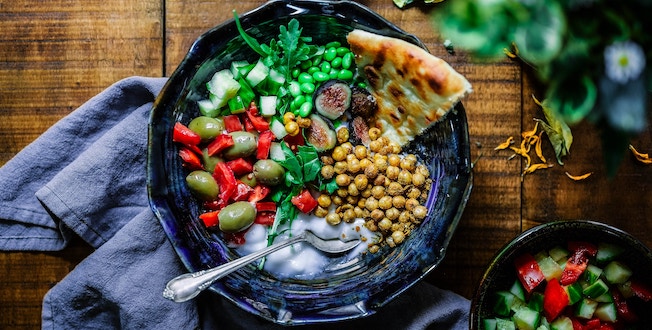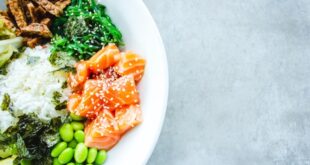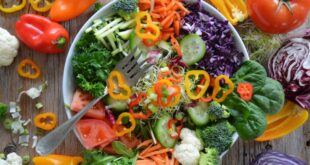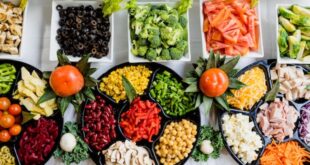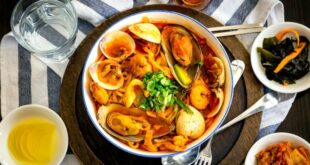Last Updated on January 16, 2024
It can be quite vexing to look for healthy halal food, especially when you’re new in the city. To make it even more challenging, having a strict diet compels you to find something healthy.
“Halal” in Arabic means “lawful” or “permitted.” For those following Muslim dietary law, dining out can be challenging when you don’t know which foods are permissible to order. As a follower of Islam, one must not consume the following:
- Animals already dead before slaughter
- Blood and any blood by-products
- Alcohol
- Carnivorous animals
- Land animals without outer ears
- Birds of prey
- Pork and any pork by-products
The ingredients and foods above are haram, which means “forbidden” in Arabic.
Takeaway: Foods considered “halal” are grown, fed, slaughtered and prepared according to the standards of Muslim dietary law. An animal that will serve as a source of meat must be slaughtered humanely: by hand, with a blessing, without the use of medicine. Similarly, fish can be considered halal if they come from the wild.
What is halal food?
Halal food is a religious standard that manages how animals you consume are grown, fed, slaughtered and prepared. The food should not contain any pork or pork products (even gelatin or shortenings) or liquor.
In terms of halal meat, it is customary for Muslims to slaughter the animal with a blessing and by hand, without using any machine. Once the animal dies, the blood should drain completely. Even farm-raised fish is not acceptable if it is not clear whether they were fed with animal byproducts. Usually, only fishes from the wild are halal-certified.
Halal promotes better health
The halal method of animal preparation for food entails draining the animal of its blood. The blood in meat can negatively affect taste and make it more prone to decay.
Halal meat is more tender, tastes better and stays fresh longer. It is also bacteria-resistant and much healthier because of the absence of blood. Furthermore, it’s economical since no blood means you bring home more meat per pound.
Halal food is abundant with spices
Most halal foods come with great quantities of spices. The most commonly used spice is curry powder, which has a lot of health benefits. Turmeric is an ingredient in curry, an excellent antioxidant that can lower the risks of heart disease, arthritis, and colon cancer.
The capsaicin in hot peppers also helps control appetite and increases metabolism. So, if you constantly find yourself reaching for an unhealthy snack, go on a halal diet.
Halal meat is hormone-free
Although halal- and organic-certified meat aren’t the same thing, there are certain overlapping qualities between the two that make organic meat a potential option for Muslims. One particular feature that stands out is the fact that both are hormone-free.
Halal meat needs to be raised humanely. Often, this means feeding chicken grass and other organic food before being slaughtered. It also entails a cage-free environment.
How to Find Halal Foods When Dining Out
Many restaurants and food establishments put up a halal sign to indicate their food is permissible for Muslims. But if you want to ensure, you can also request halal certification from the diner.
Below are healthy halal foods you can order and find in most Middle Eastern restaurants.
1. Seafood cooked without alcohol
Just because it is seafood doesn’t always mean that it’s halal. But it’s quite a good alternative if finding halal food is difficult for you in your area.
Most seafood dishes you’ll find showcased in Western restaurants are being cooked with alcohol, and alcohol is a big no-no in the Muslim practice.
When dining out, check the menu or ask the waiter if the seafood comes with alcohol. If it does, send word to the chef and request that he skip the alcohol in your dish. Most restaurants accept this humble request, whether it’s because of religious grounds or allergies.
2. Chapati and brown rice
Chapati contains whole grains and whole wheat flour and is full of nutrients. It’s high in vitamins, minerals and fiber and has a low glycemic index. If you want to be fit, eating Chapati filled with beans and vegetables is one way to stay healthy while having adequate protein and fiber.
When choosing rice, some restaurants offer brown rice. Choose brown rice over white rice because it won’t increase your sugar levels. It can also provide more fuel for your workout while making you feel full for longer.
3. Manakeesh
If you love pizza, eating manakeesh is a healthier option. Manakeesh is the Arabic world’s version of pizza. It’s a round bread topped with ground meat, herbs or cheese.
Most people find this food ideal for either breakfast or lunch. They also come in different varieties from both street vendors and fancy restaurants.
Want a healthier version? Consider topping your manakeesh with organic shredded cheese.
4. Hummus
This is one of the most famous Middle Eastern dishes and it is quite an enticing appetizer and dip. Hummus is made with mashed chickpeas, tahini, garlic, olive oil and lemon juice. It is often served with vegetables and pita bread and can be a delightful sandwich spread.
As the most prevalent food in the Middle East, it is well-known for its delicious taste. Besides being delectable, it is also rich in essential nutrients.
This dip is quite versatile as well. You can enjoy it with pita bread, vegetables or sandwiches – you’ll find great pleasure in dipping into this food.
5. Fattoush
Fattoush is a dish with simple ingredients that create a magical taste. This tasty salad is one of the Middle East’s greatest contributions to the world. It’s a healthy dish served in crunchy squares of pita, crispy lettuce, cucumber, diced tomatoes, onion, lemon, garlic, mint leaves and olive oil.
6. Falafel
A falafel is a fried ball broadly recognized as a staple food made of onions, chickpeas and spices. It can be a source of protein in a vegetarian meal or an appetizer. It’s a veritable pillar of Middle Eastern cuisine, which you’ll find in many Arabic restaurants and street food carts.
Falafel contains an outstanding balance of delicious taste and nutrients. It’s also high in fiber, sugar-free and low in calories.
7. Tabbouleh
For your appetizer or light and healthy lunch, tabbouleh is a great salad to savor. It’s made with bulgur wheat, parsley, mint and vegetables. If you’re looking for low-fat vegetarian food, this salad offers a full range of flavors in a healthy way.
Tabbouleh contains vitamins and minerals that keep your immune system strong and reduce the risk of cardiovascular diseases.
8. Shawarma
Shawarma is a popular dish available in many restaurants and food stalls worldwide. Delicious and highly nutritious, this mouthwatering Arab dish is an irresistible treat for everyone, not just Muslims. Once you’ve had your first bite, you can’t wait to have more.
It is often made with marinated beef strips, chicken or mutton, chopped vegetables, fries (or “chips” as they are sometimes called) and some spices to make up one tasty meal.
With any diet or when eating according to Halal rules, consume food in moderation to keep your body healthy.
If you’re a Muslim trying to stay fit, you don’t have to skip meals. You have plenty of food options when dining out, just like the eight food products mentioned above. Make sure to have a halal food guide when traveling to another country to ensure you know what you’re eating.
 Travel for Food Hub The Food Blog for Travel Lovers
Travel for Food Hub The Food Blog for Travel Lovers

